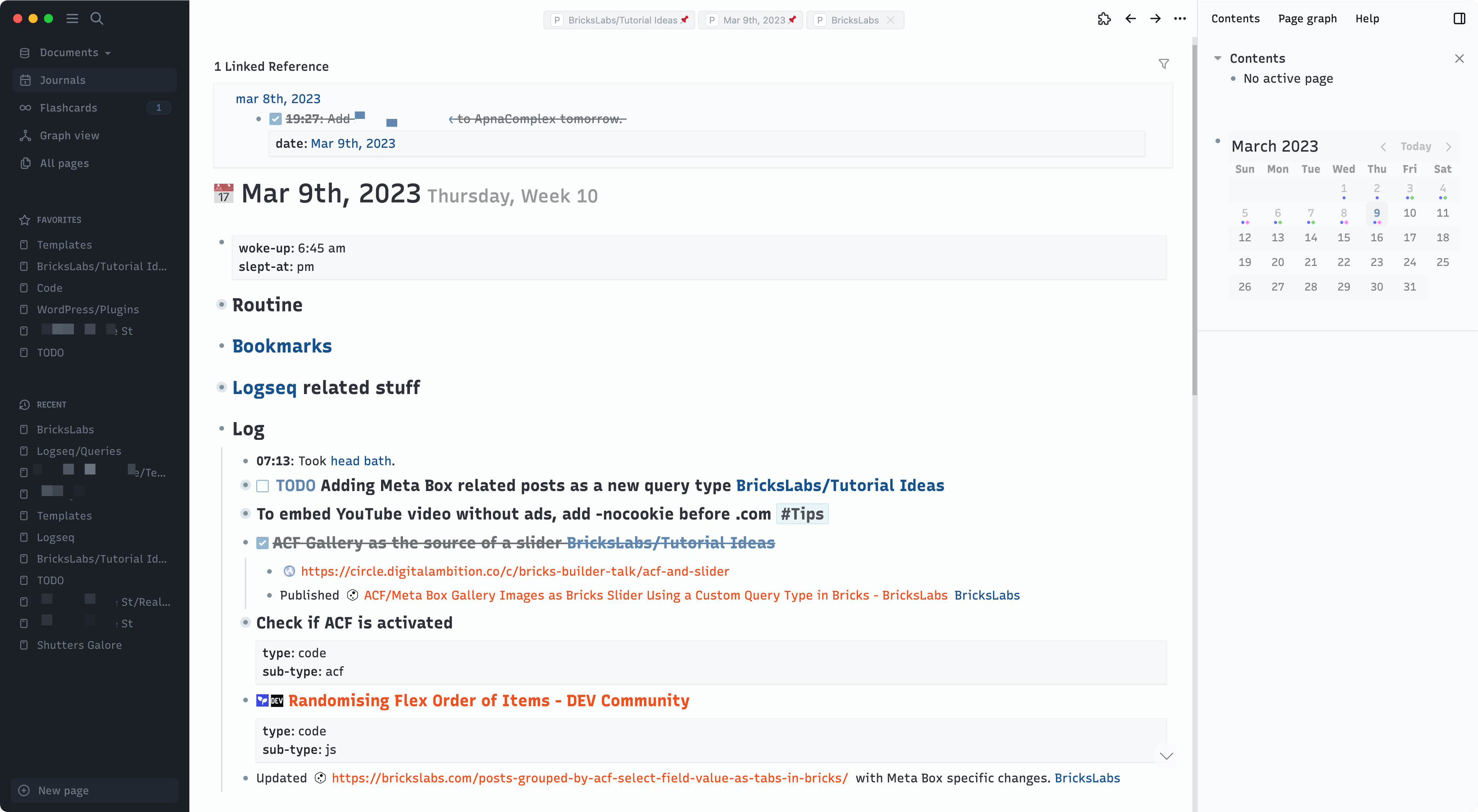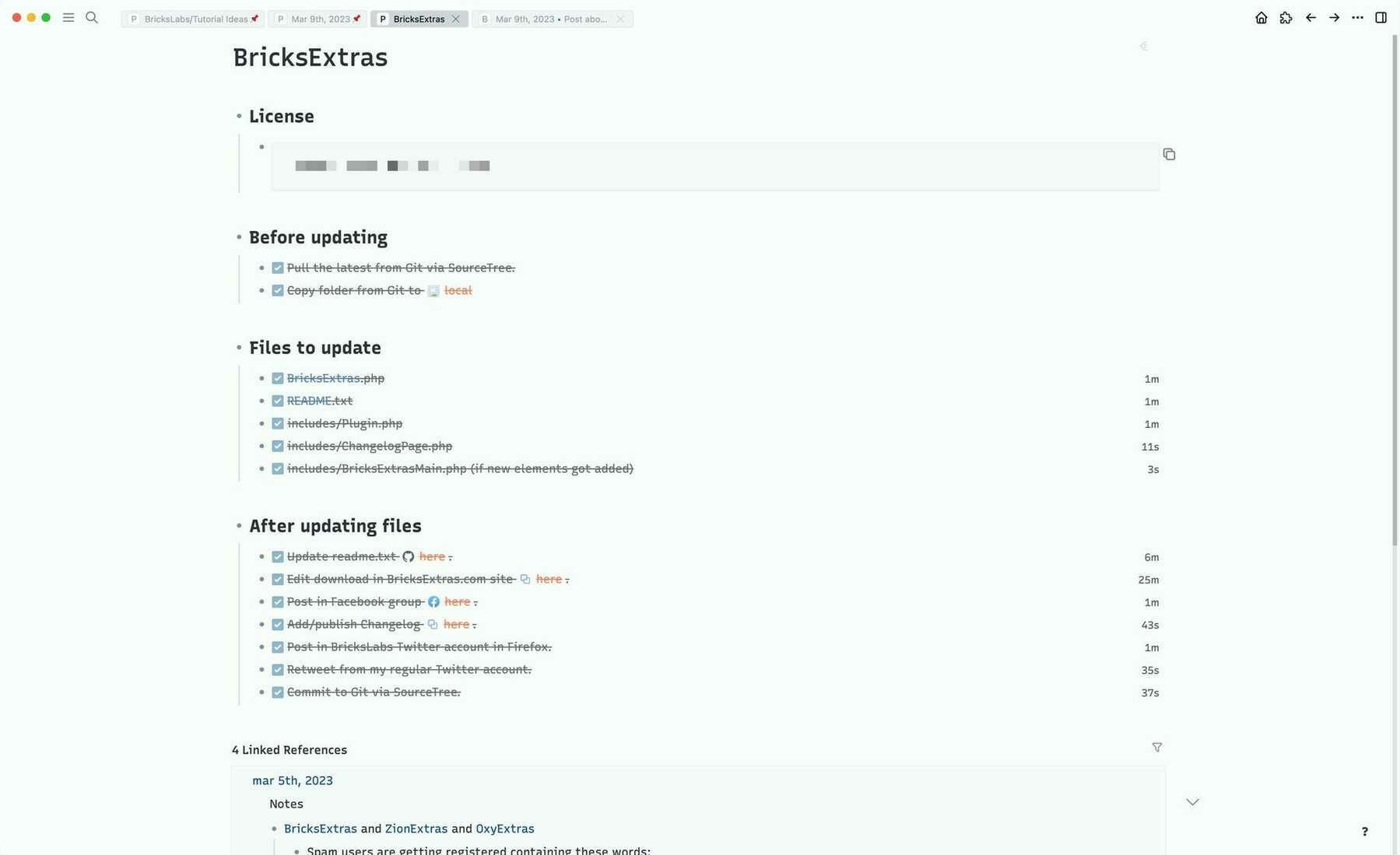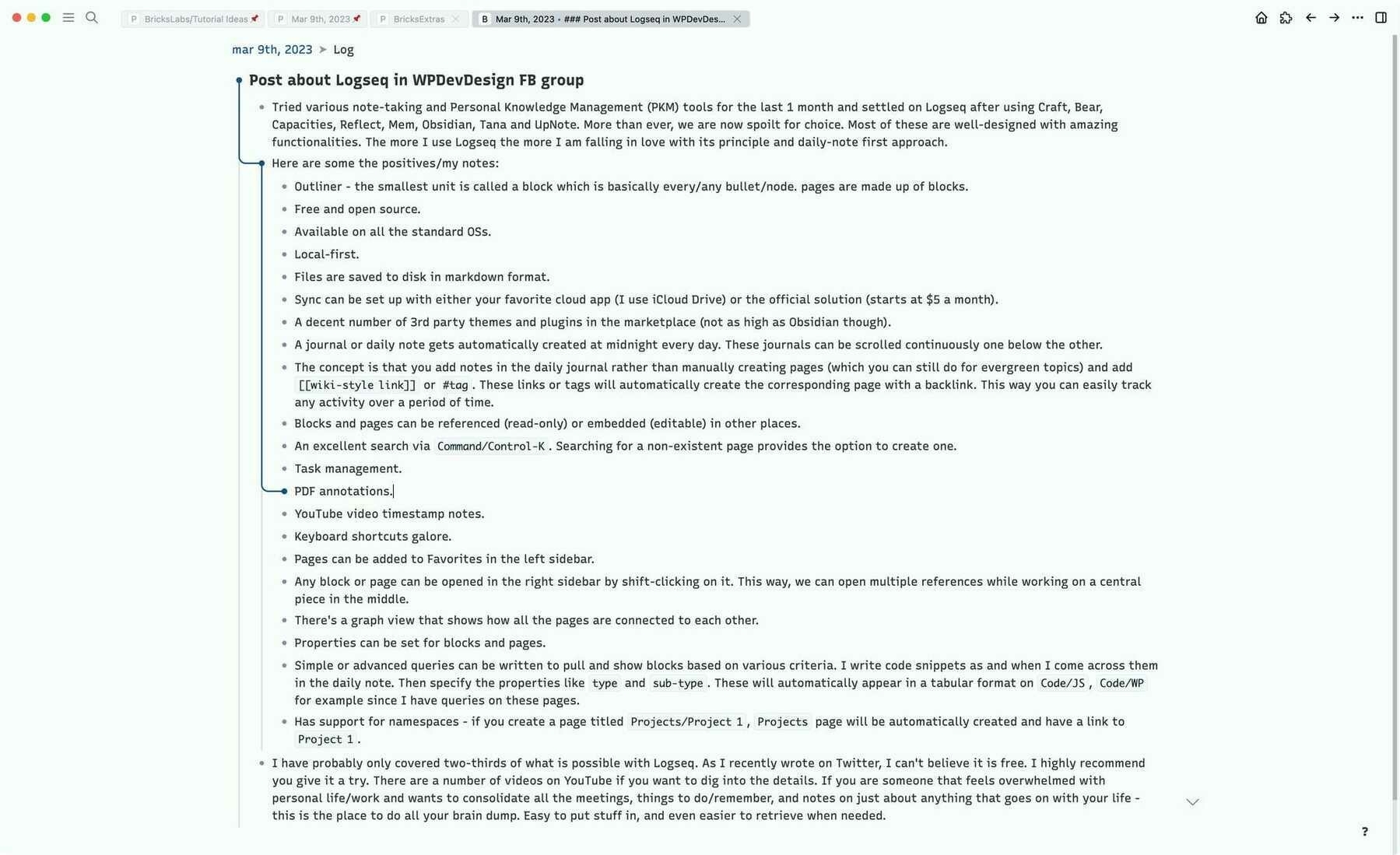Drowning in information overload? Logseq might be the lifeboat you are
Update on 30 July 2023: Switched to UpNote.
Tried various note-taking and Personal Knowledge Management (PKM) tools for the last 1 month and settled on Logseq after using Craft, Bear, Capacities, Reflect, Mem, Obsidian, Tana and UpNote. More than ever, we are now spoilt for choice. Most of these are well-designed with amazing functionalities. The more I use Logseq though the more I am falling in love with its principle of the "daily journal first" and "everything is a block" approach.
My notes:
- Outliner - the smallest unit is called a block which is basically every bullet or node. pages are made up of blocks.
- Blocks can be zoomed in to focus and remove all the distractions and zoomed out to look at the bigger picture.
- All the child blocks can be easily collapsed and expanded.
- Free and open source.
- Available on all the standard OSs.
- Local-first.
- Files are saved to disk in markdown format.
- Sync can be set up with either your favorite cloud app (I use iCloud Drive) or the official solution (starts at $5 a month).
- A decent number of 3rd party themes and plugins in the marketplace (not as high as Obsidian though).
- A journal or daily note gets automatically created at midnight every day. These journals can be scrolled continuously one below the other with the latest at the top.
- The concept is that you add notes in the daily journal rather than manually creating pages (which you can still do for evergreen topics) and add
[[wiki-style link]]or#tag. These links or tags will automatically create the corresponding page with a backlink. This way you can easily track any activity over a period of time. - Blocks and pages can be referenced (read-only) or embedded (editable) in other places.
- An excellent search via
Command/Control-K. Searching for a non-existent page provides the option to create one. - Task management with time tracking.
- PDF annotations.
- YouTube video timestamp notes.
- YouTube, Twitter and iframe embeds.
- Keyboard shortcuts galore.
- Pages can be added to Favorites in the left sidebar.
- Any block or page can be opened in the right sidebar by shift-clicking on it. This way, we can open multiple references while working on a central piece in the middle.
- There's a graph view that shows how all the pages are connected to each other.
- Properties can be set for blocks and pages.
- pages can have aliases. So you don't need to type or auto-complete
[[Personal Knowledge Management]]all the time and instead simply do[[PKM]]with both pointing to the same page. - Simple or advanced queries can be written to pull and show blocks based on various criteria. I take notes of code snippets as and when I come across them in the daily note. Then specify the properties like
typeandsub-type. The code snippets will automatically appear in a tabular format onCode/JS,Code/WPfor example since I have queries on these pages. - Has support for namespaces - if you create a page titled
Projects/Project 1,Projectspage will be automatically created and have a link toProject 1. - Readwise to Logseq export integration.
- Friendly community on the forum and Discord.
I have probably only covered two-thirds of what is possible with Logseq. As I recently wrote on Twitter, I can't believe it is free. Software this good should not be. I highly recommend you give it a try. There are a number of videos on YouTube if you want to dig into the details. If you are someone that feels overwhelmed with personal life/work and wants to consolidate all the meetings, things to do/remember, and notes on just about anything that goes on with your life - this is the place to do all your brain dump. Easy to put stuff in, and even easier to retrieve when needed.


